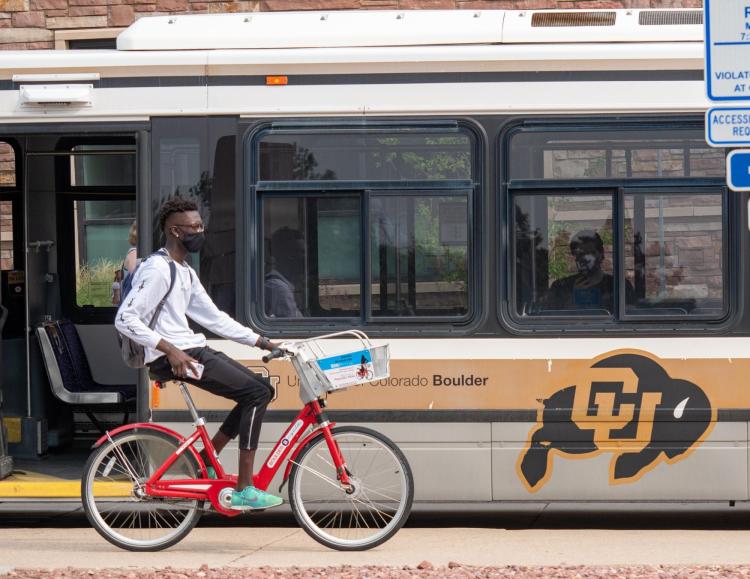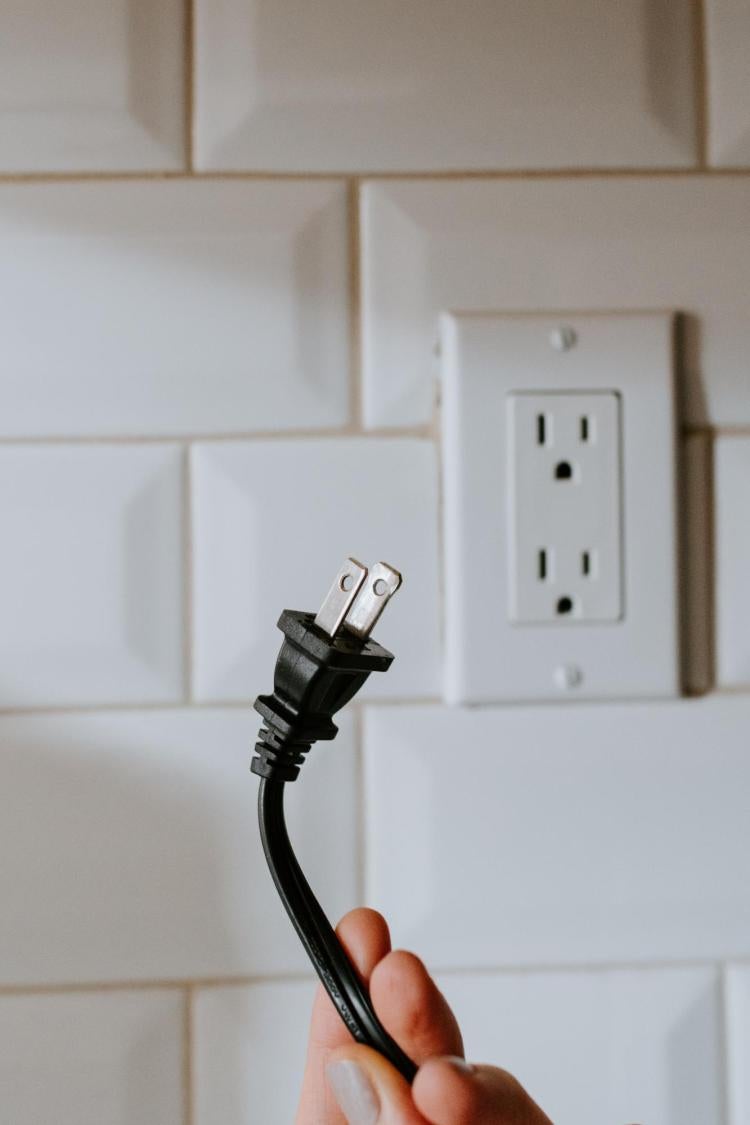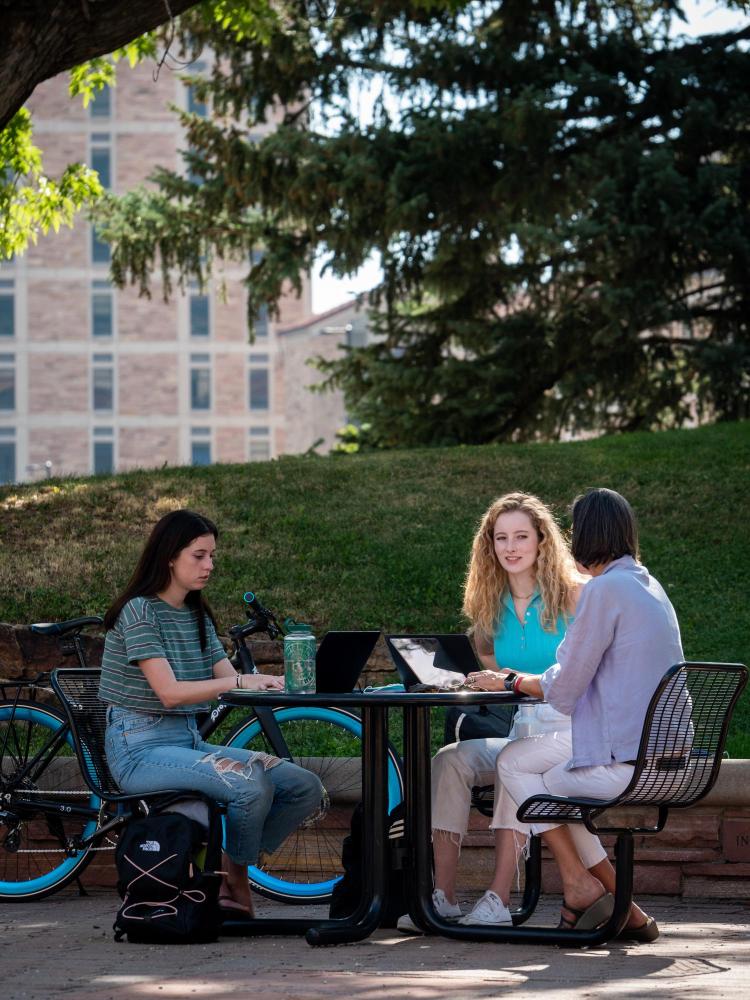In 2022, consider taking these 5 climate actions
After a year riddled with natural disasters and a major international conference in Glasgow drawing a blitz of news coverage about climate change, you may be wondering what the average person can do to address this pressing global issue in the new year.
While climate change is a much bigger problem than individuals can solve alone, decisions we make in our daily lives can make a difference, CU Boulder experts say. In addition to reducing our carbon footprint and improving our air quality, water and health, our choices can influence those of our friends and family and put pressure on governments and businesses to act.
If you want to make some climate-focused changes to improve the present and future of the planet, consider these actions in 2022.
Eat fewer animal products

More than one third of global greenhouse gas emissions are created by our food systems, according to the United Nations, and animal agriculture accounts for almost 60% of those emissions, according to a study published in September 2021.
“The evidence points to reducing meat and animal product consumption as being by far and away the biggest climate impact most people can make with their diets,” said Peter Newton, associate professor of environmental studies.
More specifically, we can reduce our impact by eating fewer meats and products made from ruminants (e.g., cows, goats and sheep), as they produce the heat-trapping greenhouse gas methane, causing an intense and immediate effect on the climate. If you’re looking to make an easy change, pick poultry, pork and fish over beef and lamb, and cut back on cheese and other dairy products.
What about alternative meats? Research suggests that products made from plants (Beyond, Impossible, etc.), have dramatically lower environmental impacts and carbon emissions compared to animal meat, according to Newton.
For example, research shows that growing 2.2 pounds of peas (the main ingredient in many plant-based alterative meat products) creates 1.5 pounds of greenhouse gas emissions, while producing 2.2 pounds of beef creates a whopping 125 pounds of emissions, making it 81 times more impactful on the climate than the humble pea.
“In terms of greenhouse gas emissions, land use and water use, producing crops is just inherently much, much less environmentally intensive and resource intensive than producing animals,” said Newton, who teaches classes on food systems and the environment.
Drive less

The largest source of carbon emissions in the U.S. as of 2019 is transportation; with cars, trucks, planes, trains and shipping comprising 29% of U.S. greenhouse gas emissions. And the data is clear: Americans drive a lot. “Light-duty” or consumer vehicles contribute to 58% of U.S. transportation emissions and make up one-fifth of the country’s total emissions footprint.
But more than half the times we get in an automobile, we're driving less than 4 miles, according to Kevin Krizek, professor of transport in the Program of Environmental Design and Department of Environmental Studies.
These shorter trips are good opportunities to opt for public transportation, walk or bike when possible. For longer trips, consider combining errands and carpooling, in addition to avoiding unnecessary trips and commuting less.
If you’re able to, driving a hybrid or electric vehicle instead of one with a typical combustion engine is another smart choice to make for the climate and for air quality in the Front Range—reducing not just carbon but various chemical emissions which contribute to harmful, ground-level ozone.
CU Boulder researchers working in the new National Science Foundation-funded center ASPIRE—Advancing Sustainability through Powered Infrastructure for Roadway Electrification—are developing the infrastructure to support the electrification of transportation, to make this decision even easier down the road.
When possible, choose electricity over gas at home

While it has replaced coal in many places, natural gas is still a fossil fuel which creates emissions that contribute to climate change. Meanwhile, as electric energy grids become powered more by renewable energy, electric power will continue to become cleaner and cheaper.
Not only are all-electric homes possible, they’re often more affordable—even in the coldest town in the lower 48—as CU Boulder students proved this year by designing and building a national-award winning solar-powered home based in Fraser, Colorado.
Another good reason to upgrade: Using natural gas makes your home a hidden source of air pollution.
Shelly Miller, professor of environmental engineering, has published research on how much indoor air pollution cooking creates inside a kitchen. And according to ongoing research by Marina Vance, assistant professor in the Paul M. Rady Department of Mechanical Engineering, gas stoves emit higher emissions of unhealthy chemicals than their electric counterparts, which can increase already high levels in our kitchens from the chemicals in foods reacting with sunlight and the personal-care products we wear every day.
For those who can’t make the switch, be sure to improve the ventilation in your home when making dinner by turning on the fan and opening a window or two in the kitchen.
Make (less) impact with your money

You don’t necessarily need to completely retool your retirement portfolio or investments to make a difference for the climate with your money, according to Shaun Davies, associate professor in the Leeds School of Business. You can have a large impact with your day-to-day purchases alone.
“The financial market is very hard to impact,” said Davies. “If you want to be noble and move the needle, you have more power in what goods you purchase and what car you drive.”
Whether installing solar panels at home or opting for secondhand clothes, research shows that these choices can also influence others to do the same, according to Leaf Van Boven, professor of psychology and neuroscience and co-director of the Center for Creative Climate Communication and Behavior Change.
“Part of the reason that we care so much about making these behavior changes is not necessarily because of the direct impact on reducing greenhouse gas emissions, but rather, because we help convey social norms, we help convey our concerns in the actions that we’re taking,” said Van Boven. “And then those have a way of kind of perpetuating themselves.”
These changes also create a better quality of life for us right now, with less pollution, lower energy bills and improvements in our health—which are attractive in their own right.
Talk about it

Whether or not you are new to comprehending the challenge that is climate change, it can be an overwhelming amount of information to process. Simply talking about it can help.
“The most important thing that people can do is to share their concerns about climate change with friends and family. Just straight up, talk about how they’re worried about the future and the impacts of a changing climate,” said Van Boven.
Opening up about climate change concerns can reap great benefits: Studies show it creates a feedback loop where more people learn about the facts, they get concerned, discuss the issues, and then tell more people about what’s happening to our planet.
But then what? That’s where Van Boven takes a page from psychology: Pair fears and acknowledgement of the problems with clear solutions and opportunities, he said.
Opt for some of the evidence-based options above, vote for leaders who will act on climate issues or get involved with local groups which work on the issue. For example, the new Center for Creative Climate Communication and Behavior Change has opportunities for students, researchers and community members.
In the end, CU Boulder experts say: We each can make a difference.
The Environmental Center has resources on how to make this holiday season less impactful on the planet.
As a global leader in climate, environmental and energy research, the University of Colorado Boulder is partnering with United Nations Human Rights to co-host the Right Here, Right Now Global Climate Summit in fall 2022. Contact cunews@colorado.edu to receive media updates.


